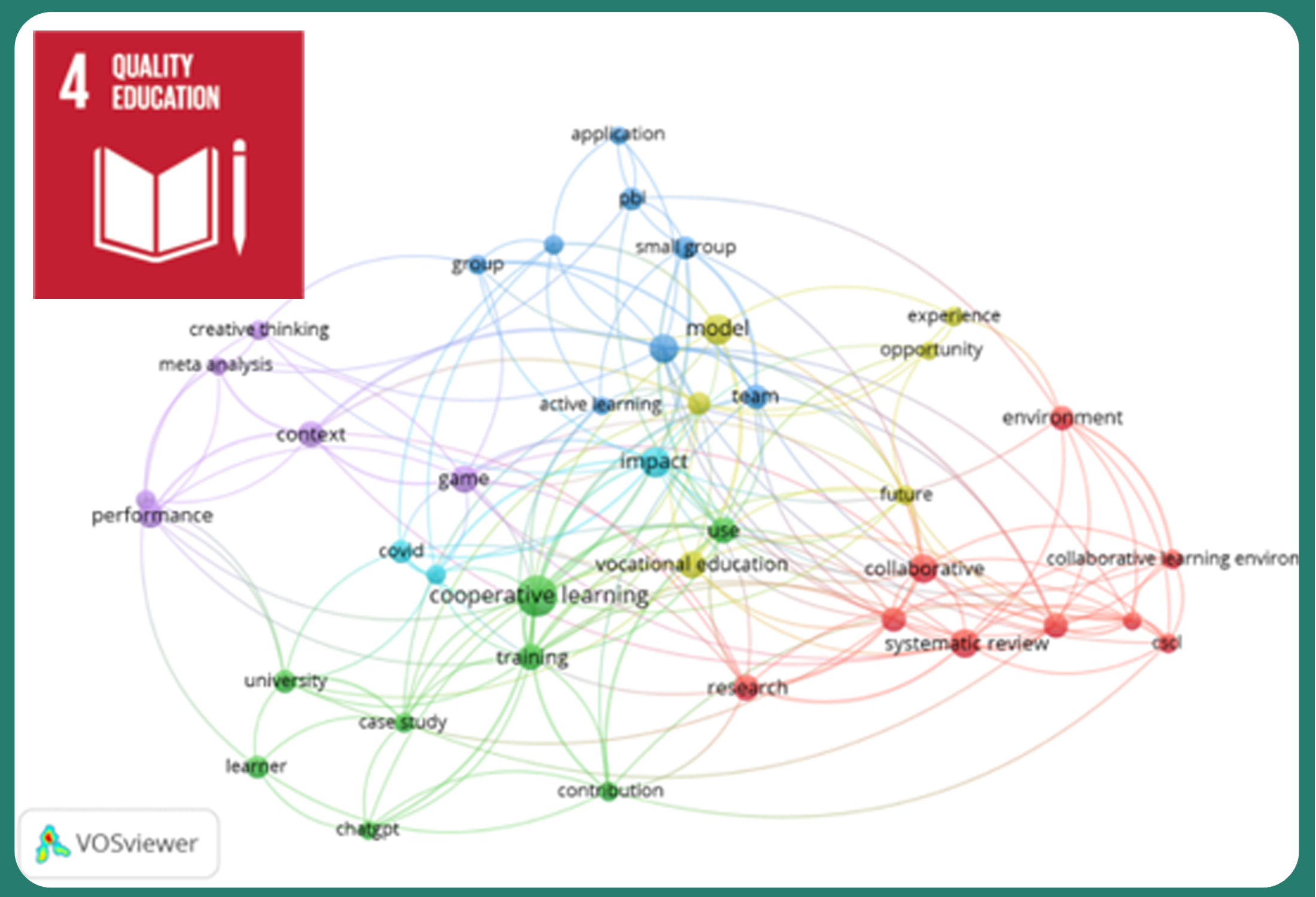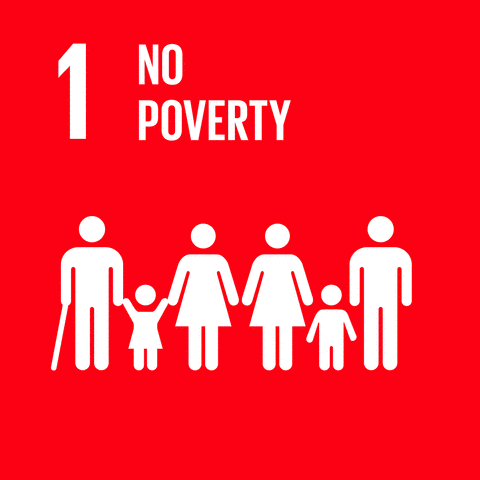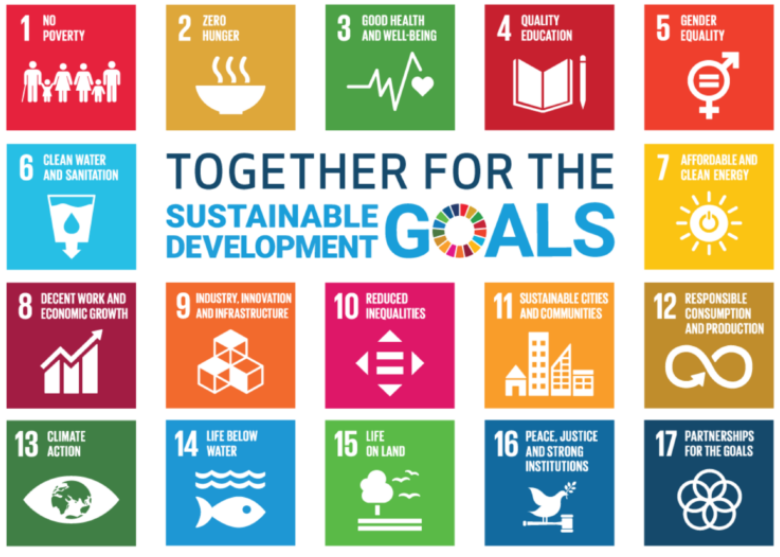Bibliometric Analysis of Cooperative Learning's Impact on Critical Thinking Skills in Computer Applications Courses in Vocational Education
DOI:
https://doi.org/10.24036/javit.v5i2.256Keywords:
Cooperative Learning, Critical Thinking, Vocational Education, Bibliometric Analysis, Systematic Literature ReviewAbstract
This study aims to map the trends and developments in the literature regarding the influence of Cooperative Learning on enhancing students’ Critical Thinking skills within the context of Vocational Education, using a bibliometric approach and a systematic literature review (SLR). The bibliometric analysis was conducted using R Studio, while keyword network visualization was performed using VOSviewer. The findings indicate that the peak of citations occurred in 2016, and the highest number of publications was recorded in 2022, with an average of 2.7 authors per article, reflecting significant multidisciplinary collaboration. The keyword visualization reveals a strong interrelation between cooperative learning, critical thinking, and vocational education, forming the core cluster of the research. These findings highlight the importance of cooperative learning as a strategic approach in developing vocational students' critical thinking skills and recommend the development of evidence-based implementation guidelines, contextual field research, and cross-sector collaboration to optimize its application in educational practice.
Downloads
References
W. Zhang, “Research on Cultivating Innovation and Entrepreneurship of Students in Local Universities Based on Data Mining,” Front. Educ. Res., vol. 6, no. 26, pp. 90–99, Jun. 2023, https://doi.org/10.5220/0011898700003613.
V. Kovalchuk, S. Maslich, N. Tkachenko, S. Shevchuk, and T. Shchypska, “Vocational Education in the Context of Modern Problems and Challenges,” J. Curric. Teach., vol. 11, no. 8, pp. 329–338, Jun. 2022, https://doi.org/10.5430/jct.v11n8p329.
Elsa Sabrina, R. Yulianti, Ambiyar, and F. Rizal, “Mengeksplor Dampak Interaksi Siswa dengan ChatGPT terhadap Berpikir Kritis dan Pemecahan Masalah,” Indones. J. Comput. Sci., vol. 13, no. 3, Jun. 2024, https://doi.org/10.33022/ijcs.v13i3.4073.
E. S. Klue, “Development of Critical-Thinking Skills in an Online Work-Readiness Course,” Walden University, 2023. [Online]. Available: https://search.proquest.com.
Sisrayanti, Ambiyar, R. E. Wulansari, and E. Sabrina, “The Effect of Blended Learning on Students’ Creative Thinking Ability: A Meta-Analysis,” Indones. J. Comput. Sci., vol. 13, no. 2, Jun. 2024, https://doi.org/10.33022/ijcs.v13i2.3866.
W. Zhang, “Research on Cultivating Innovation and Entrepreneurship of Students in Local Universities Based on Data Mining,” Front. Educ. Res., vol. 6, no. 26, pp. 90–99, Jun. 2023, https://doi.org/10.5220/0011898700003613.
Muthmainnah, P. M. Ibna Seraj, and I. Oteir, “Playing with AI to Investigate Human-Computer Interaction Technology and Improving Critical Thinking Skills to Pursue 21stCentury Age,” Educ. Res. Int., vol. 2022, no. 1, p. 6468995, Jan. 2022, https://doi.org/10.1155/2022/6468995.
Y. Walter, “Embracing the future of Artificial Intelligence in the classroom: the relevance of AI literacy, prompt engineering, and critical thinking in modern education,” Int. J. Educ. Technol. High. Educ., vol. 21, no. 1, p. 15, Jun. 2024, https://doi.org/10.1186/s41239-024-00448-3.
R. N. Indah, T. Toyyibah, A. S. Budhiningrum, and N. Afifi, “The research competence, critical thinking skills and digital literacy of Indonesian EFL students,” J. Lang. Teach. Res., vol. 13, no. 2, pp. 315–324, Jun. 2022, [Online]. Available: http://repository.uin-malang.ac.id/10246/.
I. Warsah, R. Morganna, M. Uyun, H. Hamengkubuwono, and M. Afandi, “The Impact of Collaborative Learning on Learners’ Critical Thinking Skills,” Int. J. Instr., vol. 14, no. 2, pp. 443–460, Jun. 2021, https://doi.org/10.29333/iji.2021.14225a.
M. B. Garcia, “Cooperative learning in computer programming: A quasi-experimental evaluation of Jigsaw teaching strategy with novice programmers,” Educ. Inf. Technol., vol. 26, no. 4, pp. 4839–4856, Jun. 2021, https://doi.org/10.1007/s10639-021-10502-6.
Y. P. Wang and T. J. Wu, “Effects of Online Cooperative Learning on Students’ Problem-Solving Ability and Learning Satisfaction,” Front. Psychol., vol. 13, p. 817968, Jun. 2022, https://doi.org/10.3389/fpsyg.2022.817968.
D. Cabrera, L. Cabrera, and E. Cabrera, “The Steps to Doing a Systems Literature Review (SLR),” J. Syst. Think., vol. 6, no. April, pp. 1–28, Jun. 2023, [Online]. Available: https://www.scienceopen.com/.
L. Lipponen, “Exploring Foundations for Computer-Supported Collaborative Learning,” in Computer Support for Collaborative Learning, Routledge, Jun. 2023, pp. 72–81. https://doi.org/10.4324/9781315045467-12.
L. I. González‐pérez and M. S. Ramírez‐montoya, “Components of Education 4.0 in 21st Century Skills Frameworks: Systematic Review,” Sustain., vol. 14, no. 3, p. 1493, Jun. 2022, https://doi.org/10.3390/su14031493.
M. A. Qureshi, A. Khaskheli, J. A. Qureshi, S. A. Raza, and S. Q. Yousufi, “Factors affecting students’ learning performance through collaborative learning and engagement,” Interact. Learn. Environ., vol. 31, no. 4, pp. 2371–2391, Jun. 2023, https://doi.org/10.1080/10494820.2021.1884886.
B. Thornhill-Miller et al., “Creativity, Critical Thinking, Communication, and Collaboration: Assessment, Certification, and Promotion of 21st Century Skills for the Future of Work and Education,” J. Intell., vol. 11, no. 3, p. 54, Jun. 2023, https://doi.org/10.3390/jintelligence11030054.
T. Rasul et al., “The role of ChatGPT in higher education: Benefits, challenges, and future research directions,” J. Appl. Learn. Teach., vol. 6, no. 1, pp. 41–56, Jun. 2023, https://doi.org/10.37074/jalt.2023.6.1.29.
S. A. Seibert, “Problem-based learning: A strategy to foster generation Z’s critical thinking and perseverance,” Teach. Learn. Nurs., vol. 16, no. 1, pp. 85–88, Jun. 2021, https://doi.org/10.1016/j.teln.2020.09.002.
P. Kwangmuang, S. Jarutkamolpong, W. Sangboonraung, and S. Daungtod, “The development of learning innovation to enhance higher order thinking skills for students in Thailand junior high schools,” Heliyon, vol. 7, no. 6, Jun. 2021, https://doi.org/10.1016/j.heliyon.2021.e07309.
J. Kim, H. Lee, and Y. H. Cho, “Learning design to support student-AI collaboration: perspectives of leading teachers for AI in education,” Educ. Inf. Technol., vol. 27, no. 5, pp. 6069–6104, Jun. 2022, https://doi.org/10.1007/s10639-021-10831-6.
S. Z. Salas-Pilco, Y. Yang, and Z. Zhang, “Student engagement in online learning in Latin American higher education during the COVID-19 pandemic: A systematic review,” Br. J. Educ. Technol., vol. 53, no. 3, pp. 593–619, Jun. 2022, https://doi.org/10.1111/bjet.13190.
B. A. Brown, “Teaching approaches, social support, and student learning in non-traditional classrooms in higher education,” Emerald Handb. High. Educ. a Post-Covid World New Approaches Technol. Teach. Learn., pp. 71–106, Aug. 2022, https://doi.org/10.1108/978-1-80382-193-120221004.
F. Mutohhari, S. Sutiman, M. Nurtanto, N. Kholifah, and A. Samsudin, “Difficulties in implementing 21st century skills competence in vocational education learning,” Int. J. Eval. Res. Educ., vol. 10, no. 4, pp. 1229–1236, Jun. 2021, https://doi.org/10.11591/ijere.v10i4.22028.
S. Nahar, Suhendri, Zailani, and Hardivizon, “Improving Students’ Collaboration Thinking Skill under the Implementation of the Quantum Teaching Model,” Int. J. Instr., vol. 15, no. 3, pp. 451–464, Jun. 2022, https://doi.org/10.29333/iji.2022.15325a.
S. F. Rivas, C. Saiz, and C. Ossa, “Metacognitive Strategies and Development of Critical Thinking in Higher Education,” Front. Psychol., vol. 13, p. 913219, Jun. 2022, https://doi.org/10.3389/fpsyg.2022.913219.
R. N. Indah, Toyyibah, A. S. Budhiningrum, and N. Afifi, “The Research Competence, Critical Thinking Skills and Digital Literacy of Indonesian EFL Students,” J. Lang. Teach. Res., vol. 13, no. 2, pp. 315–324, Jun. 2022, https://doi.org/10.17507/jltr.1302.11.
E. Xu, W. Wang, and Q. Wang, “The effectiveness of collaborative problem solving in promoting students’ critical thinking: A meta-analysis based on empirical literature,” Humanit. Soc. Sci. Commun., vol. 10, no. 1, pp. 1–11, Jun. 2023, https://doi.org/10.1057/s41599-023-01508-1.
G. Ortoleva and M. Bétrancourt, “Collaborative writing and discussion in vocational education: Effects on learning and self-efficacy beliefs,” J. Writ. Res., vol. 7, no. 1, pp. 95–122, Jun. 2015, https://doi.org/10.17239/JOWR-2015.07.01.05.
M. A. Adeoye, E. F. Prastikawati, and Y. O. Abimbowo, “Empowering Learning: Pedagogical Strategies for Advancing 21st Century Skills and Quality Education,” J. Nonform. Educ., vol. 10, no. 1, pp. 10–21, Feb. 2024, https://doi.org/10.15294/JONE.V10I1.1451.
C. Fante, F. Ravicchio, and F. Manganello, “Navigating the Evolution of Game-Based Educational Approaches in Secondary STEM Education: A Decade of Innovations and Challenges,” Educ. Sci. 2024, Vol. 14, Page 662, vol. 14, no. 6, p. 662, Jun. 2024, https://doi.org/10.3390/EDUCSCI14060662.

Downloads
Published
How to Cite
Issue
Section
License
Copyright (c) 2025 Elsa Sabrina, Rosma Siregar, Saras Pratama

This work is licensed under a Creative Commons Attribution 4.0 International License.










